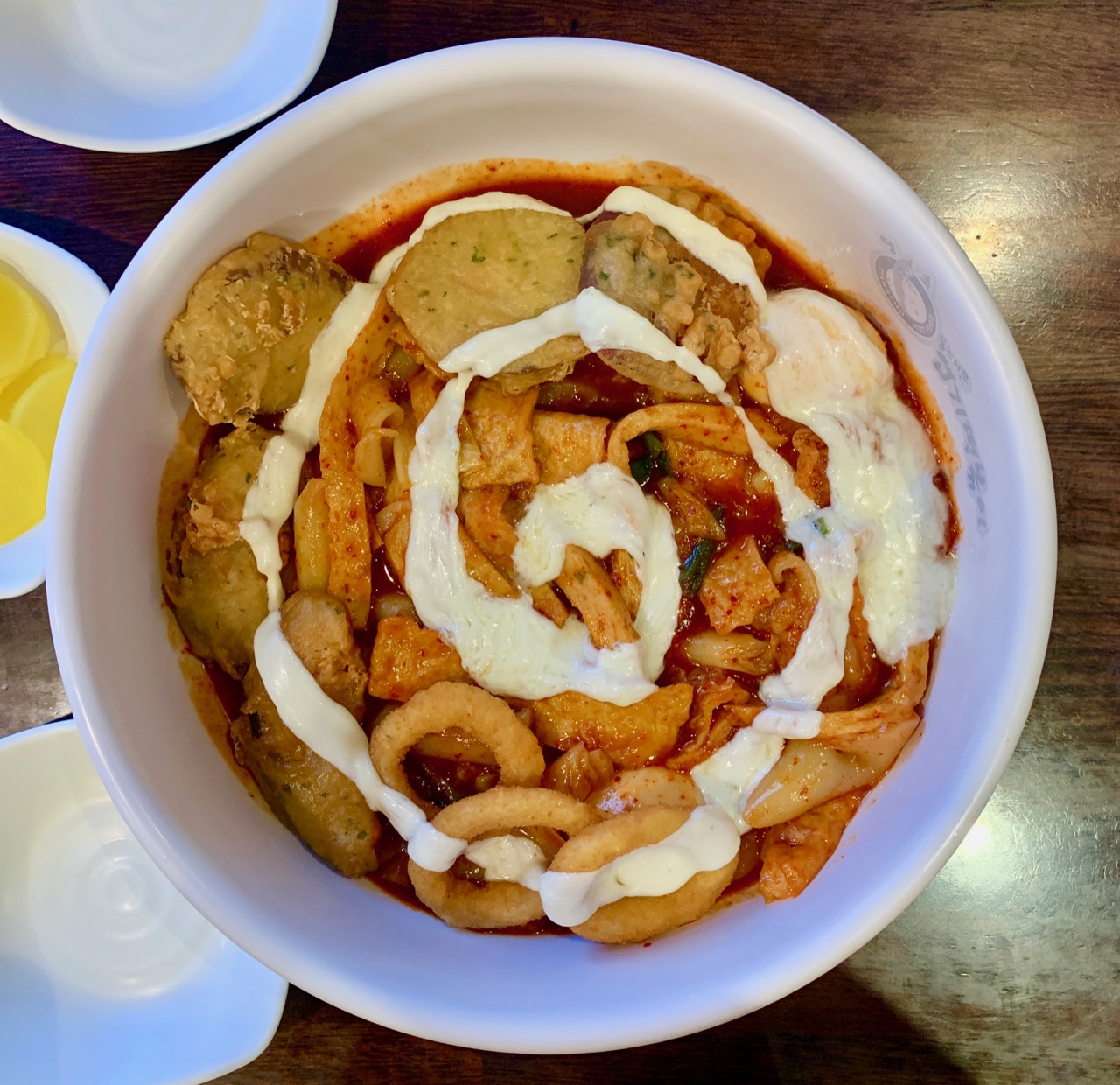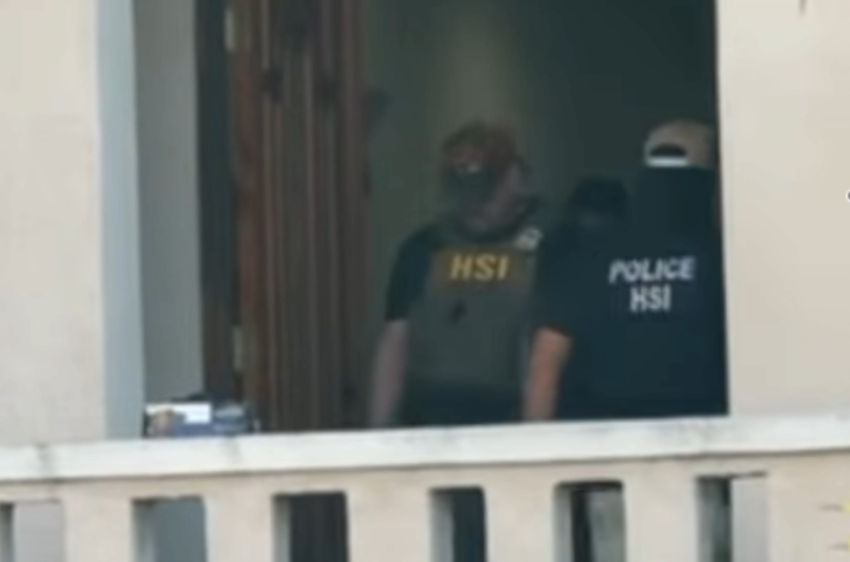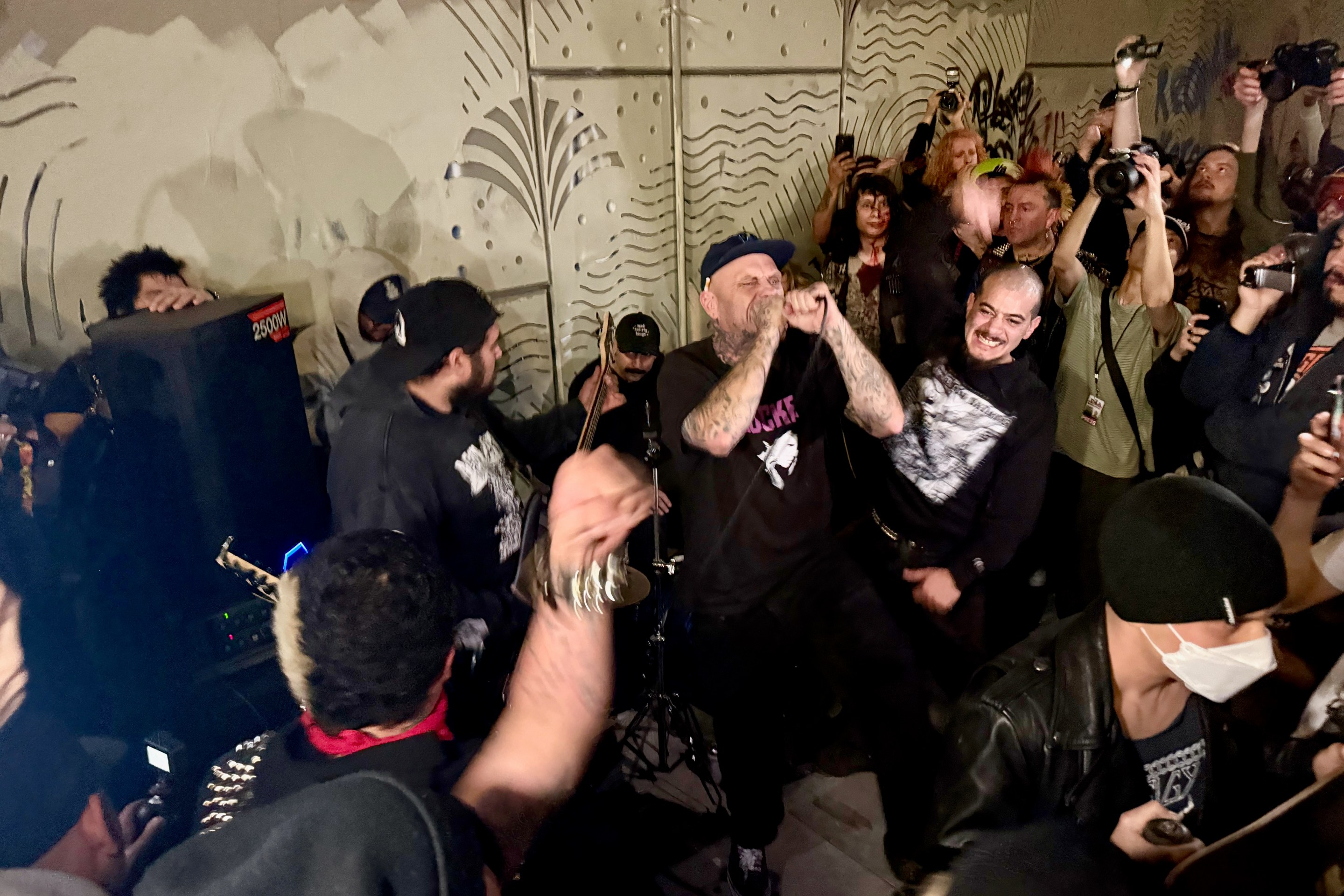[dropcap size=big]D[/dropcap]oes a volcano-like bowl of extra, super fiery chewy rice cakes sound like a good time to you?
Enter Yup Dduk LA and their four-year-strong #KtownSpicyChallenge, a spicy food challenge that has passed the test of time and proved that it’s not just a novelty act.
It's tucked away in a strip mall in Koreatown, but just look for the cartoon-like chile pepper on its signage...or the huge snake of customers that are known to wait upwards of an hour to try their luck. “Most people don’t get the spiciest level,” general manager Brandy Yoon told L.A. Taco with a laugh. “Nowadays they come to enjoy the yup dduk. People are choosing the safe option.” As Yoon broke down their spicy meter, just two tables away a diner began gasping for air as he looked up wild-eyed from his heaping bowl of spicy rice cakes. Who knows whether it was “Challenge”-level spicy, but it was impeccable timing.
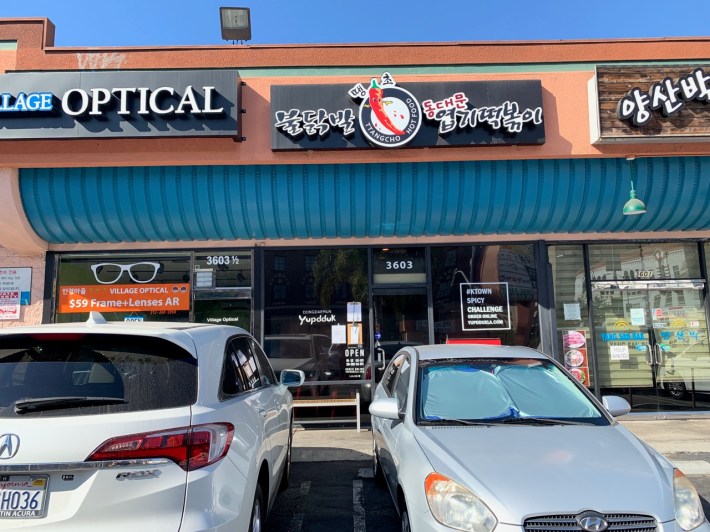
Yup dduk is the contracted term for yupgi ddukbokki, which translates to “extraordinary stir-fried rice cakes.” When Yup Dduk LA opened its doors in 2015, locals flocked to try the restaurant’s hot twist on a familiar dish. Their hashtag #KtownSpicyChallenge spread like wildfire, luring people from other corners of town with promises of an intense gustatory experience.
The paste for their stew is made with slim Cheongyang chili peppers and the lesser-known ttaengcho peppers, also known as Korean ghost peppers.
“If you look at South Korean food culture, there’s so much innovation happening—whether it’s with chicken or pizza,” Yoon said. “We didn’t see something similar happening in L.A., so we thought we’d bring new ddukbokki to town.”
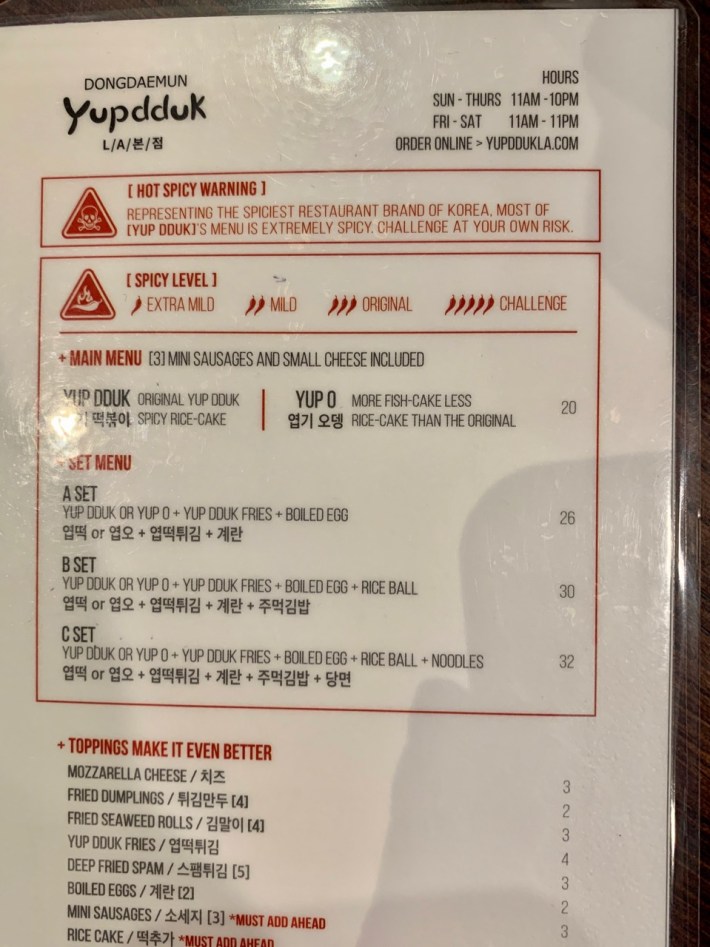
To change the traditional yup dduk dish that originated in South Korea a bit, Yoon and his team experimented with different peppers. The paste for their stew is made with slim Cheongyang chili peppers and the lesser-known ttaengcho peppers, also known as Korean ghost peppers. The Cheongyang pepper has an intensity of 10,000 Scoville heat units; though Yoon is unsure where ttaengcho peppers land on the Scoville scale, he speculates that it packs significantly more heat than the Cheongyang.
The yup dduk dish is served in a wide mouth bowl large enough to feed 3-4 people. Depending on the order, the rice cakes come with other savory accouterments such as fish cakes, cabbage kimchi, “Little Smokies” sausages, onion rings, japchae (Korean glass noodles), fried tempura-battered potatoes, and hard-boiled eggs. They’re mixed and stewed together with Yup Dduk L.A.’s molten chile paste and red pepper flakes, then finished with a swirling layer of molten mozzarella cheese on top. It’s like staring hypnotically into mouth-watering delirium.
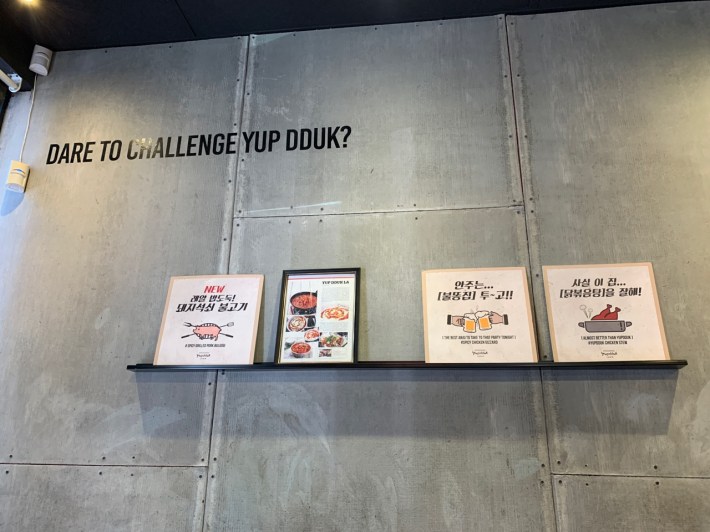
Since Yup Dduk LA revolutionized the yup dduk dish in Los Angeles, several other restaurants that specialize in spicy rice cakes have opened up shop throughout Southern California. Just south of Yup Dduk LA is Yupdduk Olympic, and there’s Yupdduk Cerritos for Orange County residents. They are all operated separately from each other, inspired by a franchised business that originated in Daegu in the North Gyeongsang Province of South Korea.
“I’ve lived here for a long time, and I wanted to make this community feel less alone,” Yoon said, who’s been a Koreatown resident for fifteen years. “I wanted to give [Koreatown] something unique and special for people to come to. We did that with ddukbokki.”
Come early, or prepare to wait up to an hour or more for a table on most evenings. Four years after it first opened its doors, Yup Dduk LA still invites newcomers and heat lovers to take on the #KtownSpicyChallenge. The hashtag nowadays is more of a slogan than a test of mettle. While there are no physical prizes or promises of a portrait hanging on a restaurant wall, you earn the right to brag that you can hang.
“I’ve lived here for a long time, and I wanted to make this community feel less alone,” Yoon said, who’s been a Koreatown resident for fifteen years. “I wanted to give [Koreatown] something unique and special for people to come to. We did that with ddukbokki.”
